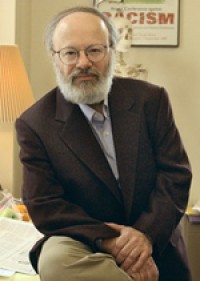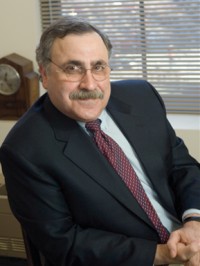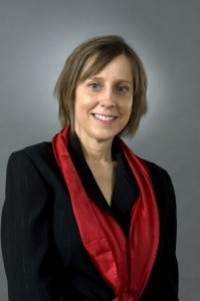BU Professors Call on Physicians to Speak Out against Unethical Force-Feeding
Three BU professors from the schools of public health and medicine – concerned that the Guantanamo Bay detention center has become a “medical ethics-free zone” — are calling on individual physicians and medical groups to speak out against the force-feeding of mentally-competent hunger strikers and to support military physicians there who refuse to participate.

In a perspective article in The New England Journal of Medicine, George Annas and Leonard Glantz, professors of health law, bioethics and human rights, and Dr. Sondra Crosby, an associate professor of medicine and assistant professor of health law, bioethics and human rights, urged physicians to “use their political power to stop the force-feeding, primarily for the prisoners’ sake but also for that of their colleagues,” referring to military physicians who are ordered by the base commander to feed the striking inmates.
As many as 100 of the detention camp’s 166 remaining prisoners have participated in a mass hunger strike, and more than 40 have been force-fed, officials have reported. The number of hunger strikers continues to grow.
The BU professors referenced recent remarks by President Barack Obama, who expressed frustration over delays in closing Guantanamo Bay: “Look at our current situation, where we are force-feeding detainees who are . . . on a hunger strike . . . Is this who we are?” Obama had said.
The professors said physicians should be asking themselves the same question.

“Physicians at Guantanamo cannot permit the military to use them and their medical skills for political purposes and still comply with their ethical obligations,” the three professors wrote. “Force-feeding a competent person is not the practice of medicine; it is aggravated assault. Using a physician to assault prisoners no more changes the nature of the act than using physicians to ‘monitor’ torture makes torture a medical procedure. . .
“Guantanamo is not just going to fade away, and neither is the stain on medical ethics it represents.”
Annas, Crosby and Glantz said the defense department had sent 40 additional medical personnel to Guantanamo in recent months to help force-feed the strikers – a process that they described as painful and degrading, as recalcitrant inmates have been known to be strapped into “restraint chairs,” sometimes for hours a day, and fed through nasogastric tubes.
The constant turnover of physicians makes the situation worse, they said, as it disrupts any sense of continuity of patient care.

The authors argued that the Department of Defense’s 2006 medical instruction on prisoners’ hunger strikes — issued during the last mass hunger strike at Guantanamo — “mistakenly conflates hunger striking with suicide.” It directs that, “in the case of a hunger strike, attempted suicide, or other attempted serious self-harm, medical treatment or intervention may be directed without the consent of the detainee to prevent death or serious harm.” But the professors argued that the goal of hunger strikers is not to die, but to risk death to have their perceived grievances addressed. The article notes that a March 2013 policy on Guantanamo strikers no longer alleges that suicide is a relevant consideration for force-feeding.
“The fact that hunger strikers have medical problems that need attention and can worsen does not make hunger striking itself a medical problem,” the professors wrote. They said physicians can and should provide medical care to consenting hunger strikers by treating specific physical ailments and helping to determine the mental competence of the detainees.
The authors noted that the World Medical Association, comprised of medical associations from nearly 100 countries, has condemned force feeding as unethical in its 2006 Malta Declaration, which states: “Forcible feeding (of mentally competent hunger strikers) is never ethically acceptable.”
The American Medical Association also spoke out in an April letter to the secretary of defense, saying that forced feeding of competent detainees “violates core ethical values of the medical profession.”
But Annas and colleagues said more action by civilian physicians is needed to support military physicians who refuse to violate medical ethics.
“It’s time for the medical profession to take constructive political action to try to heal the damage and ensure that civilian and military physicians follow the same medical ethics principles,” the professors said.
The full NEJM article is available here.
Submitted by: Lisa Chedekel.